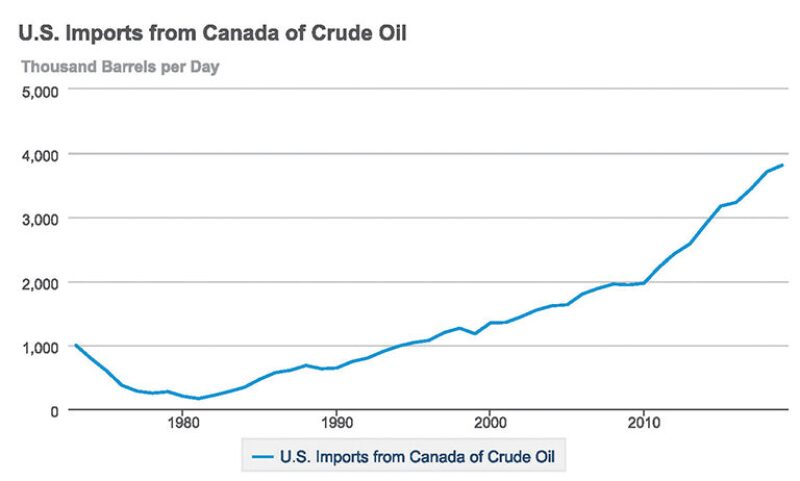For years Canadian heavy-oil production exceeded the volumes pipelines could handle.
Now that relationship has been flipped because of production cuts so deep the pipelines can carry all the oil sands produced. Three pipeline construction projects in progress could make that a long-lasting fact of life.
The current supply-demand balance is evidence of the current problem—demand has dropped from refiners, storage is tight, and prices are too low to make money. Multiple Canadian market observers have predicted production cuts of 1 million B/D or more.
Several producers have announced the curtailment of costly shipments via rail cars, which exceeded 400,000 B/D in January and February before the pandemic killed oil demand, according to Natural Resources Canada.

The drastic cuts are not forever, though they could last a year or more. Longer term, Canada’s vast oil sands resource can support far more production, and government support has revived two major heavy-oil pipeline expansion projects long stalled by opposition from environmental groups and local opposition, including some indigenous groups in Canada.
With the will and the spending power of the national government behind the Trans Mountain Pipeline to the Pacific and the Alberta government’s support of the Keystone XL project to the US Gulf Coast refineries, the odds have improved significantly of adding about 1.2 million B/D of pipeline export capacity out of Alberta.
A third project by Enbridge, the Line 3 replacement, could add another 370,000 B/D to the northern US pipeline system.


